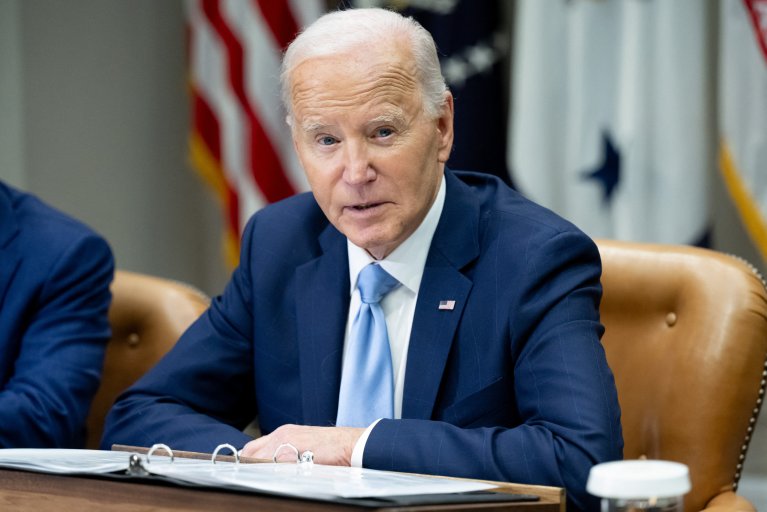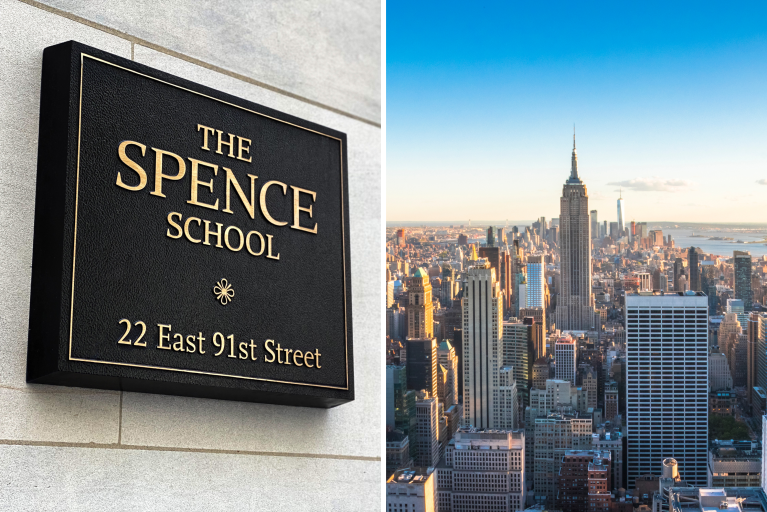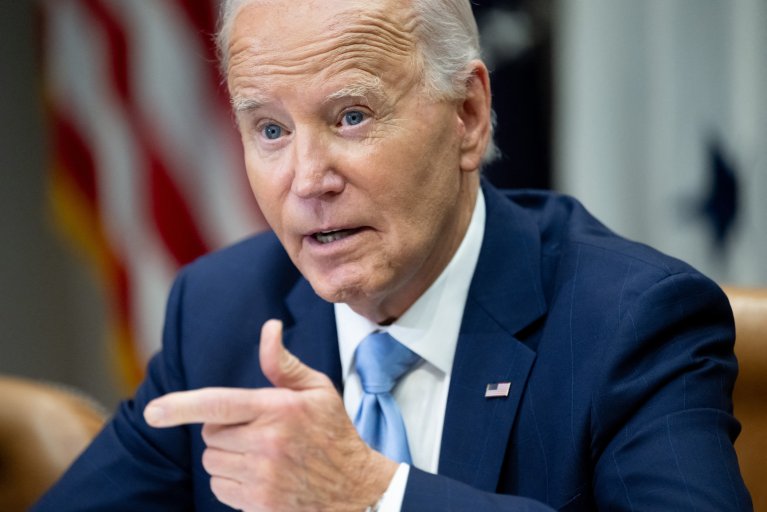A federal judge in Missouri has placed a temporary hold on President Joe Biden's latest student loan forgiveness plan, just as a separate injunction in Georgia was lifted.
The original Georgia ruling expired on October 3, allowing Missouri and five other Republican-led states to take immediate action.
Also joining the suit are Alabama, Arkansas, Florida, North Dakota and Ohio.
These states argue that the plan would financially harm taxpayers and deplete the finances of local loan providers like Missouri's MOHELA.
Trump-appointed U.S. District Judge Matthew Schelp granted the injunction, calling it an easy decision.
So far, Biden has canceled around 9.5 percent of all federal U.S. student debt, which stands at $1.6 trillion.
"This is yet another win for the American people," Missouri Attorney General Andrew Bailey said in a statement. "The Court rightfully recognized Joe Biden and Kamala Harris cannot saddle working Americans with Ivy League debt."
The legal battle began in September when several states filed a lawsuit challenging Biden's authority to enact widespread student loan cancellation.
Georgia's U.S. District Judge J. Randal Hall dismissed his state's case on Thursday, ruling that the state did not have the legal standing to continue.
The case was then transferred to Missouri, which has a strong claim through its student loan servicer, MOHELA.
MOHELA is paid based on the number of borrowers it handles, arguing that mass cancellations would cut into its revenue. In 2023, they generated $279.2 million in servicing fees.
First proposed in April 2024, Biden's plan is designed to offer relief for around 30 million borrowers, eliminating up to $20,000 of student loan debt for some and reducing interest rates for others.
Schelp's ruling brought a temporary end to speculation that the Biden administration might push through the cancellation. For a brief window, it seemed that the government would be allowed to move forward, but that opportunity quickly closed.
The Department of Education vowed to defend its proposal in court.
"This lawsuit was brought by Republican elected officials who made clear they will stop at nothing to prevent millions of their own constituents from getting breathing room on their student loans," a representative from the department said.
Republican senators argue that there are more universally challenging loans and costs Americans contend with outside of college.
Commonly cited are mortgages, cars, and medical bills, whereas Democrats assert that focusing on the spiraling costs of education will provide necessary relief to burdened working families.
Biden faces increasing pressure on his economic policies, particularly ahead of the election.
He told crowds in Wisconsin last month that he believes the plan will make a "life-changing" impact on America's college graduates. During that same trip, the president outlined four pathways in which people could potentially benefit.
Borrowers with more debt than they originally borrowed could see up to $20,000 in interest erased automatically, with loans canceled for borrowers who have been paying undergraduate loans for 20 years or graduate loans for 25 years.
Loans from low-value programs with poor financial outcomes, where people earn less than the total figure they owe, could be automatically forgiven.
Eligible borrowers for other federal forgiveness programs will have loans canceled without needing to apply, in order to dispel reservations about complicated application processes.
Those advocating for a fifth pathway—a proposed category for those facing circumstantial hardship— are set to get their wishes granted, as is being developed by the Education Department "in the coming months."
This article includes reporting from The Associated Press.
Disclaimer: The copyright of this article belongs to the original author. Reposting this article is solely for the purpose of information dissemination and does not constitute any investment advice. If there is any infringement, please contact us immediately. We will make corrections or deletions as necessary. Thank you.



